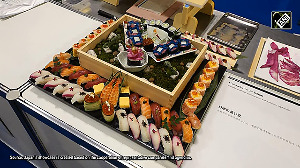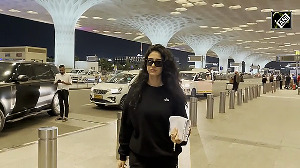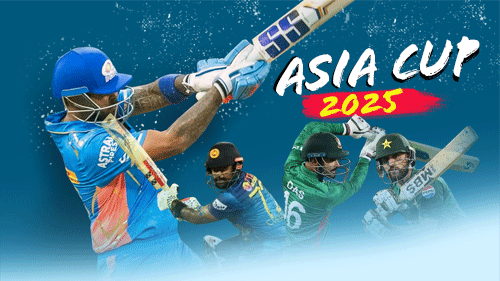Gauri Shankar and his brother Arjun share a life goal - both want to become chess grandmasters.
Gauri, 12, who came into the limelight five years ago after winning the Indian National Under 7 Chess Championship, recently returned from Benidorm, Spain, after winning the Under-14 International Junior Chess Championship.
The feathers in his cap include a British international Under-10 chess championship at age 8 (he earned a place in record books when he won the championship three years in a row), a double gold at the US National Quick-Chess Championship in 2003 where he won 19 out of 19 games, and a top spot at the US Space Coast Open Chess Championships in 2004.
Arjun, 14, has kept pace. Winner of the silver in the US junior open chess championship this year, his feats include being India's youngest player to get a FIDE rating in 2000, and winning the British Under-11 international chess championship in 2001.
The brothers are now in Chicago with their father, trying to raise funds so they can compete in various tournaments and achieve rating points (a player rated over 2700 is a grandmaster), while continuing their training with grandmasters.
Chess training is expensive, says father Manoj Chirukandath Raman, who has dedicated his life to his sons' careers, even resigning his job as a pharmacist in the Kerala government to be able to travel with them.
An hourly lesson with a grandmaster can cost between $100 and $150; the boys need at least 100 lessons each, the father says. There is a standing invitation from Russian grandmaster Alexey Dreev after the boys play in the Moscow Open in January 2006 if at all they go.
An upcoming contest is the North American Open in Las Vegas December 26 through 29, for which a friend bought them air tickets. But Raman, who stands to lose his apartment in Chicago if the rent is not paid soon, says the entry fee of about $300 and boarding expenses are proving to be prohibitive. There are invitations for championships in Australia and Gibraltar in January and February, respectively, but the costs need to be covered.
Despite the challenges, with a bag of trophies on their back, the father and sons trudge the streets of Chicago, meeting Indian organizations for help. Many friends have come to their aid in the last three years, buying airfare, inviting them to stay with them, and writing checks. But the struggle is not yet over. "You are going to learn to defeat grandmasters and become grandmasters," says Raman. "It is very tough." The brothers need about $30,000 to cover their training and tournaments costs in 2006.
The boys, whose education is sponsored by Good Shepherd International School in Ooty, Tamil Nadu, flew from India to participate in the Mid-American Open international championship in Iowa in June (where Gauri won the title) and the US junior open championship (where he won the bronze). These days, they spend most of their time in the apartment, practicing at least eight hours a day, and reading extensively. "This is like a profession for them. They respect it," their father says, lamenting, however, that their childhood has been lost.
Raman, who dabbled in chess himself, but gave up for want of resources, sees a parallel between the game and real life. "In both, we learn to advance, retreat, attack, and analyze," he says. "We take the risks, but they are calculated." And this is probably where the comparison ends. In bringing his children to the US, without funds, he feels, he took an uncalculated risk. But he is sure that with support from the Indian-American community, the Indian government, and corporates, the two prodigies will do India proud.
Manoj Chirukandath Raman can be contacted at cmgs@rediffmail.com or (847) 757-4253.






